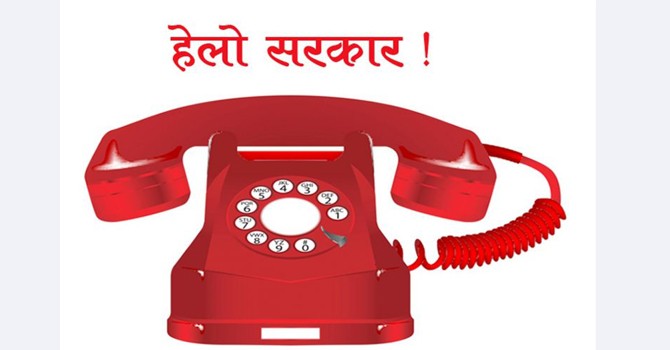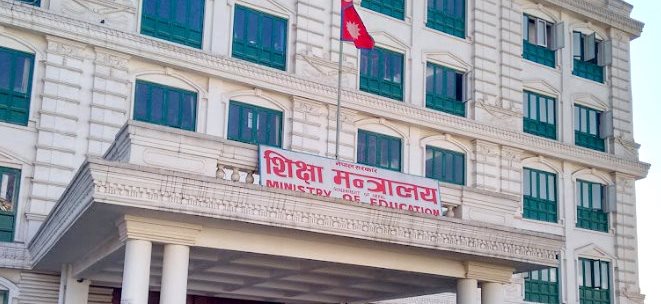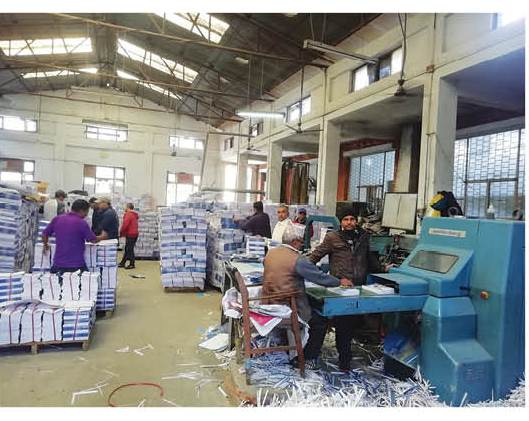Govt mulling virtual classrooms amid chances of lockdown extension
By Manjima Dhakal
Kathmandu, Apr. 5: As the coronavirus pandemic has changed the teaching-learning method across the world in the past few weeks, Nepal is also planning for virtual classes amid the battle against the virus.
The Ministry of Education and Science and Technology (MOEST) and university authorities have started discussions with concerned stakeholders through e-meeting for proper management of education of the country if the situation becomes worse than now.
The nation had already adopted distance education and e-learning in schools as well as universities, but now it needs to be extended and made accessible to all, said, Tulsi Prasad Thapaliya, Director General of the Centre for Education and Human Resource Development (CEHRD).
Thapaliya said there was no need to worry about two more weeks about school level education as all schools are closed after completion of this year’s academic session. But, the CEHRD has been consulting with authorities for resumption of education if they are unable to open schools even after April 20.
Currently, the government has been teaching Grade IX and X students through NTV plus from 11 am to 3 pm every day. Besides that, many online resources are being supplied even on CEHRD website, Madhav Prasad Dahal, information officer of CEHRD, said. Those online resources are for students from early childhood to Grade X.
Universities also starting virtual classes
Besides school level, CEHRD has been consulting with authorities of universities to run classes through online medium. Universities have already started virtual classes in some programmes while the authorities have been holding discussions about remaining programmes.
Gangaram Gautam, director of Open and Distance Education of Tribhuvan University (TU), informed that TU had been running its virtual classes in Master in English, Mathematics, and Public Administration from 2015. Now, many departments have been running classes in their own initiatives, Gautam added.
Gautam said if the lockdown continued for long, the universities could run classes online at all levels with some preparations. TU is technologically equipped for this and the university has also been holding consultations to implement the plan, Gautam added.
Likewise, Kathmndu University’s many schools have been running their programmes through virtual classes.
Mahesh Parajuli, dean at School of Education, said all programmes of the School of Education had been running completely through virtual medium. Even before the outbreak of COVID-19, many students of the school had been taking virtual classes in spite of being present in the class.
Thapaliya said if the lockdown is extended for long and students cannot be physically present in classes, the government will make arrangements for all students from schools to universities to attend classes from home.
It is not feasible for school children: stakeholders
Experts and stakeholders, however, said it would not be feasible for all students across the country. They said that e-learning won’t be accessible for all students across the country.
Educationist Prof. Dr Basu Dev Kafle said though virtual classes could be run for higher education students, it would not be possible for schools level students of remote areas.
He suggested the government to conduct a survey first how many students across the country have access to telecommunication as well as internet. He further said that the government programme of distance education programme through television and radio could support a little to the plan.
Heramba Raj Kandel, Secretary of Community Model Secondary Schools’ National Network and headmaster of Vishwa Niketan Secondary School, Tripureshwor said having a computer and its skill with students of community schools is a far cry at a time when many community schools don’t have a computer lab. Therefore, the plan of the government seems very city-centric, Kandel said.
Rituraj Sapkota, chairperson of National Private and Boarding School Association Nepal (NPABSON), said virtual classes could not be a standard model of teaching-learning as students learnt from schools in their physical presence. He demanded for approval of the contents from authorized body prior to launching the programme.
He added that classes from radio and television could be more effective than online ones in view of students spread all across the country. NPABSON itself has been consulting with some companies for the virtual classes in their schools, Sapkota said. He added if they could not open schools even after mid-Baisakh they would launch virtual classes from their schools.
Recent News

Do not make expressions casting dout on election: EC
14 Apr, 2022
CM Bhatta says may New Year 2079 BS inspire positive thinking
14 Apr, 2022
Three new cases, 44 recoveries in 24 hours
14 Apr, 2022
689 climbers of 84 teams so far acquire permits for climbing various peaks this spring season
14 Apr, 2022
How the rising cost of living crisis is impacting Nepal
14 Apr, 2022
US military confirms an interstellar meteor collided with Earth
14 Apr, 2022
Valneva Covid vaccine approved for use in UK
14 Apr, 2022
Chair Prachanda highlights need of unity among Maoist, Communist forces
14 Apr, 2022
Ranbir Kapoor and Alia Bhatt: Bollywood toasts star couple on wedding
14 Apr, 2022
President Bhandari confers decorations (Photo Feature)
14 Apr, 2022









